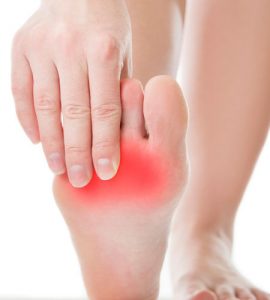How a Whole Foods Plant-Based Diet Can Benefit Those with Diabetes
If you have diabetes, you may want to consider the health benefits of a whole foods, plant-based (WFPB) diet. A plant-based diet, in general, is a very viable diet alternative if you are looking to eat healthier. Reduces Risk of Diabetes Many studies have been done to show the extensive benefits of a plant-based diet…
8 Simple Swim Workouts for Full-Body Health
The best workout is always the one you’ll actually do, and that’s certainly the case when it comes to swimming. Because the water offers gentle resistance in every direction, any movement offers some strength training, but because water is buoyant, it’s easier on your joints, bones, and muscles. Ready to hit the pool? Make sure…
Is Type 2 Diabetes Genetic?
If you are diabetic, you’ve probably had a lot of questions. You’ve wondered how you developed the disease, and to top it off, you even worry that your children (if you have them or are planning to) may develop it too. Well, let’s get down to the nitty-gritty. What causes type 2 diabetes? According to…
Study Shows Drinking Coffee Before Breakfast Raises Blood Sugar
A recent paper published in the British Journal of Nutrition has revealed some interesting information regarding the effects of disrupted sleep and morning coffee. By looking at a wide range of metabolic markers, researchers found that your early morning coffee could harm blood sugar control, especially when consumed before breakfast. Physiologists at the University of Bath (United Kingdom) put…
Increase Neuromuscular Power
by Len Kravitz, Ph.D. and Rob Tapia Competitive athletes often train for peak neuromuscular power to excel at the complex movements their sports require. With the right power training, fitness competitors can improve their tennis serve, golf swing, running speed, volleyball spike, soccer performance, basketball vertical jump, and so on. First, you need to understand the fundamentals of neuromuscular power…
Ways of Controlling and Managing Neuropathy
Neuropathy is a serious complication caused by nerve damage, results in numbness, weakness, and or pain. The numbness is either felt in the hands or the feet. This complication can be quite disabling and can affect how the rest of the body’s organs function. In most cases, it occurs because of diabetes. But it can…
Healthy Lifestyle Actions to Reduce and Manage Stress
We all experience stress at different points of our careers and personal lives, and it’s not necessarily always a bad thing. Positive stress may help build resilience and confidence. Moderate levels of stress may even boost our problem-solving skills and motivate us to work harder. Even though some measures of stress may be healthy, we…
Vacation Is Good For The Heart
A new medical study from Syracuse University led by Bryce Hruska and Brooks Gump revealed the tangible heart-protective effects of going on vacation. We all “feel” the benefits of vacation, but are yet to fully understand the underlying mechanisms behind the health benefits. To assess the health of the participants the researchers monitored markers for metabolic…
Starting A Personal Wellness Journey At Home
If you are ready to start your personal wellness journey, the best place to do so is to start at home. This way, you will be held accountable and be able to create more wellness in your everyday life. A personal wellness journey has to be about more than just one goal or intention. It…









